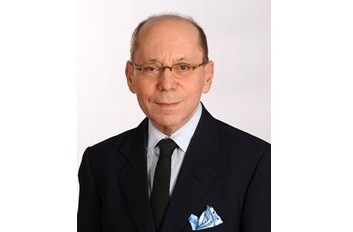The Six Million Dollar Tweet – Mark A. Fischer

A tweet is limited to 140 characters, but a picture might be worth six million dollars. Actress Katherine Heigl, who rose to Hollywood stardom on the medical drama television series Grey’s Anatomy, is suing the Duane Reade pharmacy chain for tweeting her image.
At some point a paparazzo took a picture of Heigl carrying Duane Reade shopping bags on her way out of the pharmacy. Duane Reade found it on a celebrity gossip website. On March 18, 2014, Duane Reade included the image in a tweet that read, “ Love a quick #DuaneReade run? Even @KatieHeigl can’t resist shopping #NYC’s favorite drugstore.”
That Heigl shopped at Duane Reade is a fact. When and how exactly does sharing this fact become an advertisement? In the media, it’s common to include celebrities in advertising (where obtaining permission to use a celebrity’s name is a legal requirement) and in editorial content (where obtaining permission is not required). Then there is the third category of the “advertorial” where clear rules are increasingly needed. The murky advertorial realm is where this new lawsuit sits. It’s not news that separating advertising from editorial is increasingly a complicated task.
By tweeting the message “to” Heigl (using the @ KatieHeigl command), Heigl would have received the tweet as a direct message and it would have shown up on the feeds of the 2 million or so users who follow Duane Reade.
Ms. Heigl contends that the tweet amounted to Duane Reade using her indicia without her authority to imply that she had endorsed its business. Obviously, celebrities do consensually endorse products, thus allowing businesses to use their names and likenesses -- often for substantial amounts of money running into tens of millions of dollars.
Product placement (i.e., paying celebrities to wear certain clothing labels or use certain products and/or giving them freebies) is also a widespread and well-known practice.
Heigl filed a complaint in federal court in New York. She alleged that by using her name and image without her authorization for advertising, Duane Reade had misled consumers in violation of (i) the federal Lanham Act, (ii) New York Civil Rights Law and (iii) New York’s common law of unfair competition.
Under the Lanham Act, a false or misleading representation made “in commerce” (often called “false advertising”) gives rise to liability to anyone who believes that he or she is damaged or is likely to be damaged by the misrepresentation. Similarly, New York Civil Rights Law prohibits the use of a living person’s name, portrait, picture or voice without prior consent for “advertising purposes or for the purposes of trade.”
Heigl alleged that she had suffered economic and reputational injury, including that which resulted from having been deprived of her right to choose, control and negotiate her own endorsements and how they are presented to the public. She asked the court to award six million dollars in damages plus additional attorneys’ fees and costs -- and to enjoin Duane Reade from using her name or image again for any advertising including via social media.
Social media have become a world of their own (or are social media the world?), operating with distinctive codes and conventions. Perhaps celebrities cannot realistically control the use of their images in social media when their every move is newsworthy and just about everyone they pass on the street is likely to have a smartphone with a camera. Constitutionally-protected speech may indeed extend well into social-media-based marketing, advertising, and promotion.
Celebrities’ relationships to publicity and privacy are full of inconsistencies -- and even hypocrisy. Celebrities do want to be seen (often staging their walks in Beverly Hills dressed by their personal stylists for photographers) but they don’t want to be exploited. (The singer Lorde has recently gone on the offensive against a paparazzo by posting the photographer’s image on social media and writing that she is afraid of him.) Even filing a lawsuit can play a part in shaping a celebrity’s image or at least in keeping a celebrity in the news. It’s complex and very meta.
Perhaps celebrities should send their assistants out to do their shopping, or if they must visit the drugstore on their own, hiding their purchases in their Birkin bags may be the thing to do. Fame and publicity are accompanied by many-edged swords, shields, and handbags.
Mark A. Fischer is a partner at Duane Morris LLP. His law practice is focused on solving problems and making deals for innovative companies, institutions and individuals. Mr. Fischer’s clients are typically in the creative industries such as new media, social networking, music, interactive entertainment, information technology, software, television, publishing and toys. He may be contacted at: mafischer@duanemorris.com.
Read all Mark's MediaBizBloggers commentaries at Mark A. Fischer.
Check us out on Facebook at MediaBizBloggers.com
Follow our Twitter updates @MediaBizBlogger
The opinions and points of view expressed in this commentary are exclusively the views of the author and do not necessarily represent the views of MediaBizBloggers.com management or associated bloggers. MediaBizBloggers is an open thought leadership platform and readers may share their comments and opinions in response to all commentaries.


